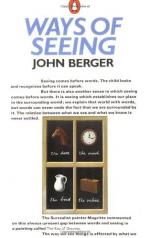|
This section contains 719 words (approx. 3 pages at 300 words per page) |

|
Perception refers to how the brain organizes and interprets sensory information. Until fairly recently, perception was considered by the school of psychology called behaviorism to be largely a passive and inevitable response to stimuli. Today's cognitive scientists, however, explain perception as an active process in which the brain treats external stimuli as raw material to be shaped, aided by our experience. Earlier in this century gestalt psychologists made a major contribution to the theory of perception by studying the ways people organize and select from the multitude of stimuli that are presented to them.
The brain receives information from the environment by way of specialized sensors called receptors. These receptors respond to physical stimuli such as light, sound, touch, taste, and smell. Nature has conveniently distributed these receptors in places on the body where they will be most useful, for example, in the retina, tongue, ears, nose, and...
|
This section contains 719 words (approx. 3 pages at 300 words per page) |

|


